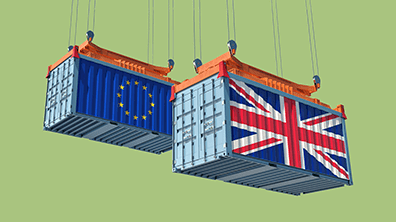The government’s coronavirus support schemes will be extended beyond the timetable for opening up the economy, to help recovery. ICAEW’s Tax Faculty highlights the main Budget announcements.
The wide range of support announced includes extensions to the two major income support schemes alongside extensions of financial assistance in other areas, such as universal credit, tax credits and stamp duty land tax.
Support for business includes restart grants, an extension of business rate relief, loss relief carry backs being extended to three years , and reduced VAT rates for the hospitality sector.
The government is conscious of the risks associated with this support and is investing over £100m in a taxpayer protection taskforce of 1,265 HMRC staff to combat fraud within COVID-19 support packages.
Coronavirus Job Retention Scheme (CJRS)
The CJRS was extended for a sixth time. Instead of ending at the end of April the scheme will remain available until the end of September 2021.
Support will reduce as the economy reopens. Employees will continue to receive 80% of their pay for hours not worked, but employers will have to contribute 10% towards the cost of unworked hours in July and 20% in August and September.
The eligibility for the scheme has also been amended. From 1 May 2021, newly eligible employees, who were employed on 2 March 2021, will be included as long as a payment of earnings was reported on RTI between 20 March 2020 and 2 March 2021.
Self-employment Income Support Scheme (SEISS)
The eligibility criteria for the fourth SEISS grant were confirmed; the Chancellor also announced a fifth and final grant.
The eligibility criteria for these grants have been updated to take into account 2019/20 self-assessment tax returns, which must have been filed by 2 March 2021, but are otherwise largely unchanged. Some newly self-employed taxpayers who were not eligible for the first three grants will be eligible for the final two grants.
The fourth SEISS grant has been set at 80% of three months’ average trading profits and is capped at £7,500. HMRC will contact potentially eligible taxpayers in mid-April and applications will be open from late-April to the end of May 2021.
The fifth grant has been set at 80% of three months’ average trading profits capped at £7,500 for those whose turnover has reduced by 30% or more. Those with a turnover reduction of less than 30% will receive a grant based on 30% of three months’ average trading profits, capped at £2,850. Applications are expected to open in late July.
Stamp duty land tax (SDLT)
The temporary increase in the residential SDLT nil rate band to £500,000 in England and Northern Ireland is extended until 30 June 2021. The nil rate band will then reduce to £250,000 until 30 September 2021 before returning to £125,000.
VAT and duties
The temporarily reduced rate of 5% VAT for the tourism and hospitality sector will continue until 30 September 2021.
A transitional 12.5% rate will apply for the subsequent six months until 31 March 2022. While continuing to provide a reduced rate of VAT will be welcomed by the sector, this rate change may not be simple to implement.
Budget 2021 Report
ICAEW's Tax Faculty will be publishing its comprehensive summary of the tax-related Budget announcements on Friday 5 March.
Autumn Budget 2021
Read all of ICAEW's insights and analysis of the Chancellor's announcements on 27 October, as well as useful background information.




